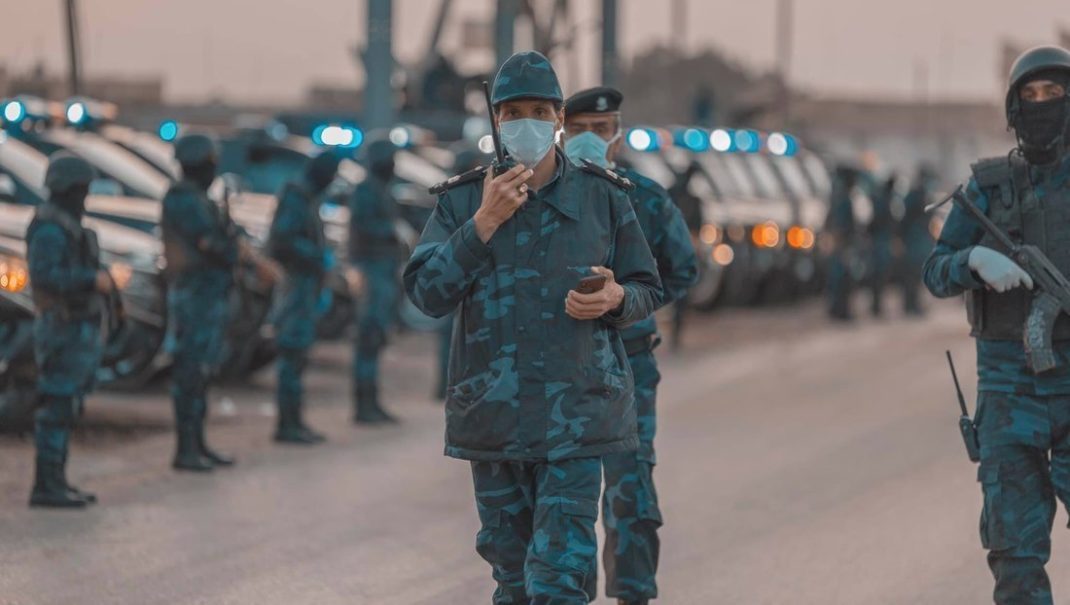By Emad Badi
 The impact of Covid-19 on proxy dynamics in Libya is multi-faceted. The pandemic could temper proxy dynamics but only if the opportunity costs of interventionism become too high for both domestic and external belligerents.
The impact of Covid-19 on proxy dynamics in Libya is multi-faceted. The pandemic could temper proxy dynamics but only if the opportunity costs of interventionism become too high for both domestic and external belligerents.
Covid-19 will most likely influence relationships on two fronts: between foreign sponsors and their proxies on the ground and between proxies and local communities in their areas of control.
In recent decades, diminishing domestic support for overseas wars has not necessarily translated into isolationism.
Instead, the political reluctance to formally deploy troops has transformed patterns of involvement, paving the way for private military contractors or local militia groups to emerge as surrogates that can advance strategic and ideological interests while allowing their sponsors to maintain plausible deniability.
Considering its contagious nature, Covid-19 is likely to trigger a similar shift in means and methods in Libya.
The recruitment and financing of battle-hardened mercenaries from underdeveloped or conflict-ridden third-party states to feed the Libyan conflict has already constituted a long-standing method for proxy involvement.
Russia is reportedly the latest international actor to join the UAE and Turkey in doing so, transferring fighters from regime-held areas in Syria to bolster General Khalifa Haftar’s army.
This trend is unlikely to abate and will become a defining feature of how regional players intervene in Libya over the coming period.
The global economic downturn that the pandemic has spurred, compounded by the drop in global oil prices, could change calculations for external actors.
These may prioritize achieving short-term strategic wins to guarantee longer-term benefits, irrespective of the financial burden that may be incurred and reputational risks.
“The recruitment and financing of battle-hardened mercenaries from underdeveloped or conflict-ridden third-party states to feed the Libyan conflict has already constituted a long-standing method for proxy involvement”
In fact, the UAE and Turkey intensified their commitments at exactly the time that coronavirus struck.
Despite the economic woes that may grip Ankara post-pandemic, its current calculus is that guaranteeing the survival of Libya’s Government of National Accord (GNA) in the midst of General Haftar’s onslaught from the east will yield long-term economic benefits through its maritime agreement with the internationally-recognized government.
It is at the societal level where Covid-19 may have an unforeseen impact.
Many of Libya’s regional players tend to assume that the social legitimacy of their local allies can be sustained exclusively through foreign military support.
The pandemic is likely to dispel this myth as it reveals local proxies’ inability to govern, in turn delegitimizing them further in the eyes of their local constituents.
In Libya, both Eastern and Western authorities’ public health capabilities are ill-equipped to deal with a crisis of this scale.
The spread of the virus may be tapered by Libya’s virtually inexistent transport infrastructure and the curfews imposed across the country but local authorities will still be discredited.
In the West, this will result from the corruption and mismanagement that has hampered an effective containment response, while in the East this will result from its securitized response to the crisis, one that revolves around the persona of Haftar.
These dynamics will likely lead to a forced devolution of authority to the local level as communities organize and mobilise their own resources and efforts to avert a public health crisis.
Against this backdrop, foreign military support will fail to mend the relationship between local proxies and disillusioned local communities.
What this forebodes is further fragmentation within the political and security landscape that will likely manifest itself as subnational structures move to violently contest higher authorities.
Eastern Libya is likely to be hit hardest, particularly as the shortcomings of the public health response are compounded by the trail of grievances that Haftar’s faltering offensive on Tripoli leaves behind – with dozens of his fighters being captured or dying.
This could cause upheaval amongst the tribes and clans that have supported his offensive as well as broader sections of the population in the East who have become disenchanted by his promises of a quick victory.
Conversely, in Western Libya, the public health response is already severely hampered by the routine shelling of hospitals and the displacement hundreds of thousands.
The perceived corruption of the GNA is deepening divides amongst the political class and armed groups operating under its banner.
Many municipalities have in fact already refused the Tripoli government’s allocated funding to combat the virus as their constituencies protested the perceived unequal distribution of the resources by the GNA.
GNA-aligned armed groups and their affiliated communities also protested the government’s controversial plan to provide relief funds to municipalities in Haftar-controlled territories, citing fear these funds could be diverted by Haftar to fund his war effort.
As such, while foreign sponsors will seek to buttress their preferred allies, this strategy will not address the dwindling social legitimacy their proxies may suffer.
Overall, Covid-19 is unlikely to bring Libya’s civil war to a halt. Instead, it could bring about a contagion of instability that will spread across the country and breed more local conflicts.
Despite the limited dividends it is likely to yield, proxy powers will continue to invest in their allies, despite the inability of these groups to secure long-term objectives for their sponsors.
***
Emad Badi – Non-Resident Fellow, Atlantic Council
__________
PWI




